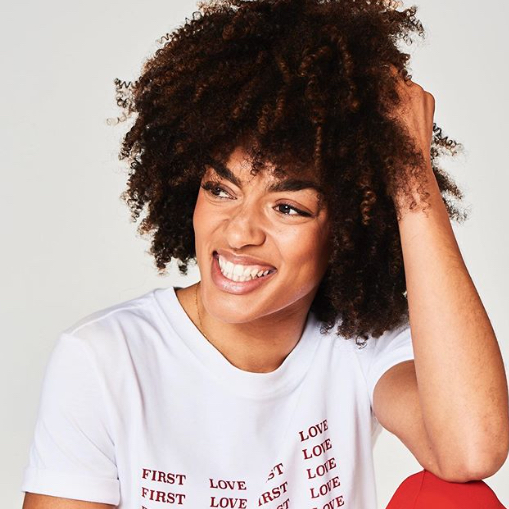What to really say to a friend who’s been furloughed or made redundant
If a friend’s job is under threat does a chat have to be awkward? Not if you can become a good listener


If a friend’s job is under threat does a chat have to be awkward? Not if you can become a good listener
What to really say to a friend who’s been furloughed or made redundant? It's a chat no one wants on their wishlist. But before any conversation with a friend who’s facing redundancy or being furloughed, remind yourself of the rollercoaster we’ve all been on in the past few months. The worry and anxiety that have come with lockdown will be heightening your friend’s emotions, affecting their ability to cope with further change.
'Apart from the initial shock of their situation, they may be feeling resentment and anger on top of everything else. Identifying with this is so important,' says Elaine Carnegie, founder of wellbeing and mental health consultancy Beingworks. 'Setting a tone of warmth, compassion and understanding is crucial at the start of any conversation. This situation is outside your friend’s control so it’s important to reinforce this and the fact that it’s not their fault and there’s nothing to feel ashamed of.'
What to really say to a friend who’s been furloughed or made redundant
1. Pick your location
The environment in which you have this conversation is important. 'Make some time to meet face to face if you can and choose a place where you can chat freely. Walking in nature is always a good choice. If you’re on Zoom or FaceTime look into the camera so your friend feels like you are focusing entirely on them,' says Carnegie.
2. Ask and wait
The way we ask questions and wait for responses is so important when it comes to support. 'The crucial thing is to listen non-judgementally. We all view the world through different lenses so it’s important not to force your judgement and opinion on their situation,' says Carnegie. 'You really have no idea how your friend is feeling. Ask the simple open question of ‘How are you?’ but even more important than that is asking again, ‘No, really...how are you?’ And waiting for a response.' You might get a short reply at the start that doesn’t reflect how they are really feeling, so ask again and encourage them to talk about how they actually feel.
3. Listening skills
Use eye contact and body language to show you’re listening and validate how they are feeling. 'Don’t try to brush off what they say or try to tell them ‘It will be fine’ etc, which could well make them feel worse. Validate that what they are feeling is normal and completely justified. Using sentences like 'I can only imagine how difficult this is for you’ and ‘Tell me how you’re feeling’ goes a long way,' says Carnegie.

4. Understanding not responding
'As human beings we have an in-built desire to ‘fix’ a situation or provide a solution. Whilst this is always done with the best intentions, when others are going through challenges like redundancy, the ‘fix me’ approach isn’t what’s needed. Give them space to be able to open up and process their situation,' says Carnegie. By doing so they can come up with their own plan, rather than pushing away their feelings or invalidating them. And ask a few questions about their rights and the consultation process, so they can think about questions to raise with their employer.
Marie Claire Newsletter
Celebrity news, beauty, fashion advice, and fascinating features, delivered straight to your inbox!
5. Allow silences
'Silences make us feel uncomfortable so we feel we need to fill the space. By doing so however we are stopping that person from processing their emotions and thoughts,' says Carnegie. Silence allows them to continue and to explore their own thinking around the situation. In some circumstances, it can allow space for reflection to really identify what will make them happy and fulfilled in the future. 'Opportunities can come from change as well,' advises Carnegie.
6. Encourage new perspectives
By spending this time reflecting on all aspects of their life and career, it may be that your friend is able to see things from a new perspective or identify things they want to change. Getting them to focus on what they can control in the interim while exploring untapped hopes and dreams can be really helpful. Through the anxiety, stress and difficulty, there can be moments of clarity and with that your friend can take comfort - or even get a whole new sense of direction, says Carnegie. Suggest a weekly routine of doing something together, like a regular walk or tennis game, creating an opportunity to keep the conversation going.
Maria Coole is a contributing editor on Marie Claire.
Hello Marie Claire readers – you have reached your daily destination. I really hope you’re enjoying our reads and I'm very interested to know what you shared, liked and didn’t like (gah, it happens) by emailing me at: maria.coole@freelance.ti-media.com
But if you fancy finding out who you’re venting to then let me tell you I’m the one on the team that remembers the Spice Girls the first time round. I confidently predicted they’d be a one-hit wonder in the pages of Bliss magazine where I was deputy editor through the second half of the 90s. Having soundly killed any career ambitions in music journalism I’ve managed to keep myself in glow-boosting moisturisers and theatre tickets with a centuries-spanning career in journalism.
Yes, predating t’internet, when 'I’ll fax you' was grunted down a phone with a cord attached to it; when Glastonbury was still accessible by casually going under or over a flimsy fence; when gatecrashing a Foo Fighters aftershow party was easy-peasy-lemon-squeezy and tapping Dave Grohl on the shoulder was... oh sorry I like to ramble.
Originally born and bred in that there Welsh seaside town kindly given a new lease of life by Gavin & Stacey, I started out as a junior writer for the Girl Guides and eventually earned enough Brownie points to move on and have a blast as deputy editor of Bliss, New Woman and editor of People newspaper magazine. I was on the launch team of Look in 2007 - where I stuck around as deputy editor and acting editor for almost ten years - shaping a magazine and website at the forefront of body positivity, mental wellbeing and empowering features. More recently, I’ve been Closer executive editor, assistant editor at the Financial Times’s How To Spend It (yes thanks, no probs with that life skill) and now I’m making my inner fangirl’s dream come true by working on this agenda-setting brand, the one that inspired me to become a journalist when Marie Claire launched back in 1988.
I’m a theatre addict, lover of Marvel franchises, most hard cheeses, all types of trees, half-price Itsu, cats, Dr Who, cherry tomatoes, Curly-Wurly, cats, blueberries, cats, boiled eggs, cats, maxi dresses, cats, Adidas shelltops, cats and their kittens. I’ve never knowingly operated any household white goods and once served Ripples as a main course. And finally, always remember what the late great Nora Ephron said, ‘Everything is copy.’
-
 How the slogan t-shirt became this season's must-have - and why it's more than just another trend
How the slogan t-shirt became this season's must-have - and why it's more than just another trendNot just another Nineties throwback
By Clementina Jackson
-
 How are Trump’s tariffs affecting the fashion industry?
How are Trump’s tariffs affecting the fashion industry?The fluctuating situation in the US is having very real consequences
By Rebecca Jane Hill
-
 Here's every character returning for You season 5 - and what it might mean for Joe Goldberg's ending
Here's every character returning for You season 5 - and what it might mean for Joe Goldberg's endingBy Iris Goldsztajn
-
 A nurse shares important advice for life post-lockdown
A nurse shares important advice for life post-lockdownAs we mark International Nurses Day 2021 on May 12, a clinical nurse consultant shares her expert advice on how to navigate life with fewer and fewer restrictions
By Olivia Adams
-
 How to overhaul your toxic relationship with your laptop, according to a psychotherapist
How to overhaul your toxic relationship with your laptop, according to a psychotherapistIs life lived entirely online ruining your motivation? Here's how to repair your toxic relationship with tech
By Kate McCusker
-
 How to ask for a pay rise, plus have any difficult work conversation while WFH
How to ask for a pay rise, plus have any difficult work conversation while WFHYour complete guide to approaching any difficult question, professionally
By Ally Head
-
 Jess Phillips on how to take a stand against workplace inequality
Jess Phillips on how to take a stand against workplace inequalityBy Niamh McCollum
-
 Why diversity is crucial in our post Covid-19 workplace
Why diversity is crucial in our post Covid-19 workplaceCompanies have long paid lip service to diversity. But in a year that saw the world changed by Black Lives Matter and the inequality of the pandemic, we need less talk and more action if we're to create a truly diverse post Covid-19 workplace, writes award-winning business strategist Melanie Eusebe.
By Niamh McCollum
-
 Online meetings: how to hold the room and stop men taking over
Online meetings: how to hold the room and stop men taking overBecause there are only so many times you can switch off the camera so they can't see you silently screaming. Here are five bullet-proof ways a business consultant and leadership coach deals with mansplainers
By Maria Coole
-
 How to be your best self by embracing your flaws
How to be your best self by embracing your flawsRita Clifton is one of the most successful businesswomen of her generation (FYI Hillary Clinton loves her), and she's sharing her take on the 'faking it 'til you make it' myth with practical advice on dealing with imposter syndrome
By Maria Coole
-
 Adrienne Herbert: “I’ve definitely dropped the ball"
Adrienne Herbert: “I’ve definitely dropped the ball"Feeling uncertain about the future of work? You’re not alone. We spoke to trainer and author Adrienne Herbert AKA Adrienne LDN about her own experience navigating the changing working landscape and why it's OK to drop the ball sometimes...
By Sophie Goddard